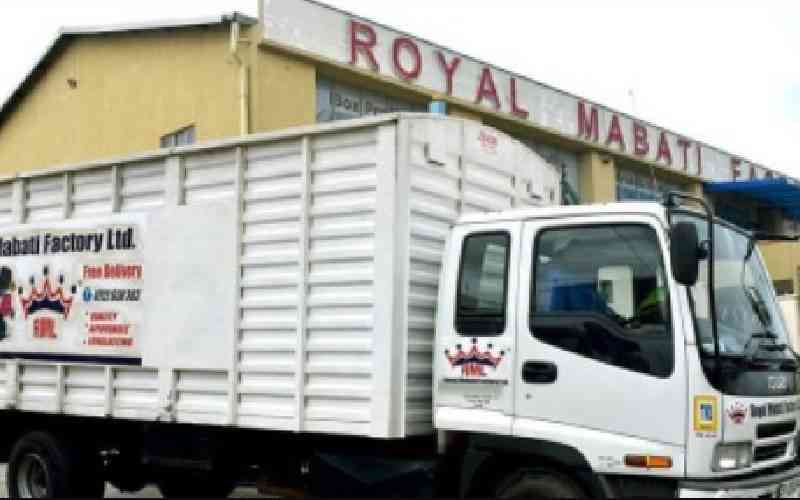Cash-strapped companies partly owned by the Government have put up some of their assets for sale in a bid to stay afloat. While observers are quick to see this as the proverbial kicks of a dying horse, the firms have insisted this is a strategic move to help them focus on their core mandate.
Without ruling out the survival component, experts have agreed that shedding of some extra assets will go a long way in helping the firms deliver.
Johnson Nderi, manager in charge of corporate advisory at ABC Capital, says companies sell assets sometimes as a matter of survival. “At other times, it is a matter of sorting your assets. If you have assets you are not using in direct course of your business then there is no sense in holding it,” he says.
Institute of Economic Affairs—Kenya CEO Kwame Owino concurs. Mr Owino says the current trend is informed by a change of strategy. “Perhaps a company needs some liquidity. If a strategy has changed, the company may decide to convert some of the assets to the ones which will give them better returns,” he says. But this sale is not like any other, all indications are that this is being done out of desperation. In plain terms, these companies need some liquid cash. These cash-strapped companies include Kenya Airways (KQ), National Bank of Kenya (NBK), and Uchumi Supermarkets. Telkom Kenya is another.
Kenya Airways is expected to raise about Sh10 billion from the sale of seven of its 52 aircraft and part of its prime land in Embakasi to cut debt it owes suppliers. The national carrier announced a jaw-breaking loss before tax of Sh29 billion for the financial year ending March 31, 2015.
For Nderi, other than the option of selling some of its assets, the national carrier had very little options at hand. “That was the easiest solution available to them at that time. If you are holding property and it is not helping you generate revenue, why are you holding it?” he wondered. “I can’t think of any commercial reason why KQ should own property. On the flipside, they have made huge losses and they need to finance these losses, so what do they do? Their non-core assets are one of the available options to them,” added Nderi.
Dr George Njenga, Dean of Strathmore Business School agrees with Nderi. He says keeping unproductive assets would not create greater value for shareholders as compared to the prospects presented by the asset sale and the company’s future business strategy.
“If properly done, asset sales can restore credibility. The problem comes in if the continued operation of business is costly and capital intensive and asset sale’s funding is inadequate to fund capital resources for a long-term strategy,” he adds. Moreover, asset sales would enable KQ to focus on strengthening its core businesses rather than diverting its attention to non-productive assets, according to Dr Njenga.
Return on assets
National Bank of Kenya (NBK) has also announced its intention to sell 12 branches as part of on-going restructuring. NBK CEO Munir Ahmed although not providing actual figures, he told the National Assembly’s Public Investment Committee (PIC) that the sale prices were above market value. He denied claims that NBK was engaging in asset stripping- the process of buying an undervalued company with the intent of selling off its assets for a profit-saying that the sale of 12 branches was to raise additional capital. “Any well-run bank does not invest in real estate since the venture does not earn optimum profit,” explained NBK boss.
Because the golden rule in business is that people should stick to their lines of business, banks should channel most of their efforts to lending. National Bank had no business owning branches because the return on money for lending is ordinarily higher than what they would get in terms of capital gains from the branches owned. “And capital gains is not a cash flow so it does not directly benefit the shareholder or management of the business,” he adds. Banks typically lease offices, according to Nderi.
The rule of the thumb to owning assets, according to Dr Njenga, is that every shilling invested in a physical asset should give at least 20 per cent returns every year. Return on assets measures the income generated by the assets one owns.
Uchumi Supermarkets, which has also been facing cash flow challenges is also selling a Sh2 billion plot in Kasarani in its newest plan to steer clear of financial troubles. The retailer has over Sh1 billion in outstanding debts to suppliers. The retail chain announced that a 20-acre parcel of land along Thika Road had been placed on the market and that its disposal would place the giant retailer in an ‘extremely good position.’
Last year, Telkom Kenya issued a tender for the sale of its 11 houses valued at Sh80 million in Gilgil, Nakuru County. The company also sought to sell 79 acres of land in Nairobi’s Karen area but the sale was stopped by the courts over a commercial dispute. The company which was acquired by France Telecom is yet to break even. There are speculations that the Frenchmen are eyeing to exit the Kenyan unit.
Employee disruption
But why did they acquire the assets in the first place? According to Dr Njenga, the obsession with investment in assets is not unique to the companies, it is a Kenyan trait. Kenyans, he says, have been made to believe that the best investment is on ownership of plots, land and buildings. “Unfortunately only very few know the real estate business and therefore end up losing the opportunity of investing the funds better because they are tied in land and other physical assets,” says Dr Njenga.
“Our Kenyan culture teaches us to amass land and other physical assets not realizing that the high cost of maintaining these assets negates the future value envisioned. Only when people suffer a financial crunch do they really reconsider the value of holding on to the physical assets they have. This mentality I am afraid also applies to our larger than Kenyan life companies,” says Dr Njenga.
Indeed, selling of the assets as the companies are doing is not likely to solve all of the companies’ problems. “Many companies overate their physical assets disposal returns. I therefore would sincerely wish to know how much they have planned to generate from the asset disposal, how that value will help in defraying the loans they have undertaken and whether they actually achieve what they set out to get,” says Dr Njenga.
Moreover, with the sale of assets there will be the risk of employee disruption associated with the asset sales and lack of arms-length transactions given the related party purchase of the said assets. “It follows that, while trying to gainsay financial capacity to pay their employees emoluments, they may be creating other unemployment,” added Dr Njenga.
 The Standard Group Plc is a multi-media organization with investments in media
platforms spanning newspaper print operations, television, radio broadcasting,
digital and online services. The Standard Group is recognized as a leading
multi-media house in Kenya with a key influence in matters of national and
international interest.
The Standard Group Plc is a multi-media organization with investments in media
platforms spanning newspaper print operations, television, radio broadcasting,
digital and online services. The Standard Group is recognized as a leading
multi-media house in Kenya with a key influence in matters of national and
international interest.
 The Standard Group Plc is a multi-media organization with investments in media
platforms spanning newspaper print operations, television, radio broadcasting,
digital and online services. The Standard Group is recognized as a leading
multi-media house in Kenya with a key influence in matters of national and
international interest.
The Standard Group Plc is a multi-media organization with investments in media
platforms spanning newspaper print operations, television, radio broadcasting,
digital and online services. The Standard Group is recognized as a leading
multi-media house in Kenya with a key influence in matters of national and
international interest.









